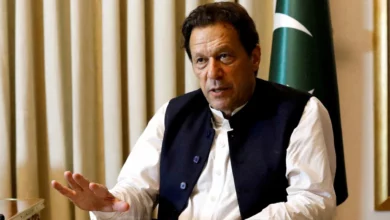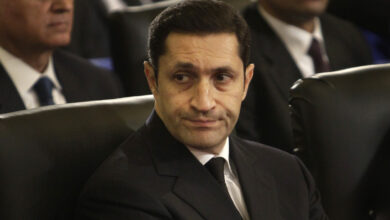It appears ex-President Hosni Mubarak is still living in a presidential state of mind. Well-aware that he's a former president who has stepped down, Mubarak still adopts a presidential attitude.
The tone of his audio message on Sunday, which aired on al-Arabiya, is proof. The ex-president responded to charges levelled against him of financial abuses. To clear his name, it may have been more practical for Mubarak to write a letter to the attorney general and the Illicit Gains Authority making his case. Or, before bowing out, he could have given a statement that all his overseas assets are the possession of the state but were only under his name symbolically.
Mubarak did none of these things. Rather, he decided to surface only when he felt the noose was closing in on him and his family. His audio message reminds us of statements he gave during the revolution that only made matters worse.
In his message, Mubarak only responded to accusations of power abuse and illegal acquisition of wealth; he completely neglected political corruption for which he bears primary responsibility.
But Mubarak is not alone, we have neglected this issue. Many of us consider the 25 January revolution to be mainly against of a handful of figures from the ousted regime and their illegal acquisition of wealth. But more important is the legacy of political corruption under Mubarak’s 30-year rule.
The ex-president did not talk about draconian legislation passed by his regime, like the amendment to Article 76 of the now-suspended constitution that imposed strict eligibility criteria for would-be presidential candidates.
He also failed to address the rigging of past elections that brought the former ruling National Democratic Party (NDP) to power. When some NDP parliamentarians objected to Refaat al-Mahgoub’s appointment as parliamentary speaker in the mid 1980s, Mubarak famously retorted, “You have all been appointed.
Mubarak’s worst offense was his effort to thrust his son, Gamal, into the political sphere and possibly into the presidency. Mubarak was cunning, declaring publicly that he was against hereditary succession while secretly pushing his son to the fore.
Mubarak does not want to discuss political corruption, which was rampant during his rule. He did not mention it in his audio recording because we, oddly enough, have not made it our priority.
When Mubarak assumed power in October 1981, he said that “nobody takes their money to the grave”, suggesting that his reign would be characterized by financial integrity. He famously put Rashad Othman, Essmat al-Sadat and several others accused of financial misconduct in prison. Financial corruption does not need a revolution in order to be rooted out. Our revolution should address political corruption, which has not happened until now.
Mubarak still shows the disposition of a president. When he talks, he wants the others to listen. He must be held accountable for his political misdeeds, some of which have tarnished Egypt’s image and weakened its international role.
When I listened to Mubarak’s message I remembered the recordings of Saddam Hussein, Ayman al-Zawahri and Osama Bin Laden. The latter three all recorded messages for their followers to carry out certain missions. Perhaps Mubarak’s message had the same objective. Or perhaps it was the ousted leader’s attempt to hang on to a presidential state of mind to which he has grown addicted.
Translated from the Arabic Edition.




